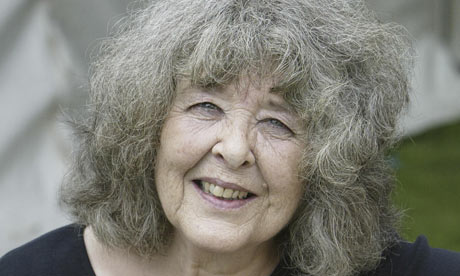
Leafing through the longlist for the 2009 Guardian children's fiction prize, I was reminded what a high hit rate the award has had since kicking off in 1967 – to my mind, it is the only children's writing award to challenge the American Newbery Medal. In the years I've been reading children's books, both legitimately, as a child, and with furtive defiance, as an adult, I've never regretted reading any of the prize's winners or shortlisted books. In fact, when I want to truffle for a new children's author, I often refer to past winners whose work I haven't yet got around to reading, secure in the knowledge that I won't be disappointed.
The prize is also dear to my heart for being one of the few major awards given early in her career to my beloved Diana Wynne Jones, for Charmed Life in 1978. These days, all the cool kids are queueing up to present her with World Fantasy Awards for lifetime achievement, but back in the day she had to settle for Carnegie commendations, never once scooping the coveted foil cover medal. So hats off to the Guardian award for recognising her merit early on.
Looking at former winners it's remarkable to run your eye down the list and see how many remain fire-new in the memory. Some are obvious classics (Watership Down, The Owl Service), but some – like Sylvia Waugh's The Mennyms, with its cast of melancholy, philosophical rag dolls, or Ruth Thomas' The Runaways – I haven't read for years, but still recall certain crucial moments with absolute clarity.
The generous spirit of the Guardian prize also takes my fancy. Somewhat snootily, the longer-running Carnegie has been withheld three times in the past as "no book was considered suitable" – the Guardian award, by contrast, has twice been given to joint winners, in 1992 and 1996. This willingness to be open-handed with praise and acclaim is particularly appealing as the winner is determined by a jury of children's authors – trial by one's peers in the truest sense. I'd only like to be present when the judges mutter through gritted teeth: "Why didn't I think of that?"
The award doesn't favour one genre or register over another – SF and fantasy, historical fiction, urban and suburban realism have all been represented and rewarded. From the gently pastoral (Dick King-Smith's The Sheep-pig) to the ruthlessly hard-hitting (Melvin Burgess's Junk), the prize sifts the huge array of kids' books which come out every year, retaining only the mind-snaring originals for the longlist.
This year's line-up is uncompromising, but the standard is, as usual, high, even if the books have a dark tendency. Then by Morris Gleitzman, about two children who, fleeing a Nazi death-train, attempt to hide in a Poland riddled with informers, is frankly harrowing. Marcus Sedgwick's Revolver, a grim Arctic account of a gun's fascination eating into the protagonist's mind like a kind of moral rust, breathes inimical frost off every page while managing to retain a tiny, crucial core of humane warmth. Exposure by Mal Peet is a sensational retelling of the Othello story, set in a context of Brazilian football and pop celebrity, against a background of appalling child poverty and deprivation.
These are not junk reads, or books which can be read on auto-pilot – like the prize's previous winners, they will stay with you long past the point at which you put them down.

